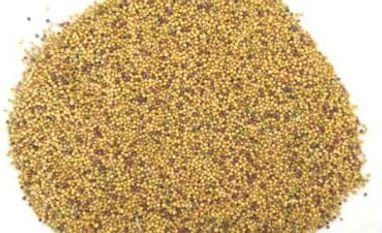According to the Securities and Exchange Board of India (Sebi) regulations, if a buyer or taker of delivery is not satisfied with the quality of the goods delivered on the exchange's platform, then it is the exchange's responsibility.
Today the exchange has issued a circular to this effect. Some traders say that there were complaints of high moisture content in the rapeseed/mustard stored in exchange-recognised warehouses.
NCDEX has said in the circular, "When the Exchange notifies compulsory sampling and testing in any commodity before deliveries, the same shall be carried out through an independent assayer appointed by the Exchange. Further, the cost of such compulsory sampling and testing before outbound delivery shall not be required to be borne by the constituents taking physical delivery. Any claim arising out of the deviation in the quality parameters on the lower side in comparison to the assaying result at the time of deposit of commodity shall be settled with the constituent taking delivery by the warehouse service providers".
Usually, when a seller deposits goods in a recognised warehouse, the warehouse has to ensure that the goods deposited meet the quality standards of the exchange. Now if quality differs at the time of delivery, as per the NCDEX circular, the warehouse service provider has to settle the dispute with the taker of the delivery. According to the exchange's website 50,690 tonnes of rapeseed/mustard lie with exchange-recognised warehouses.
The issue of compulsory assaying of commodities being delivered assumes significance because delivery levels are rising and more and more farmers are also participating on the exchange platform. For example according to the exchang's data, it has facilitated smooth delivery of 52,457 tonnes of goods for the May 2016 expiry contracts, compared with 29,293 tonnes for the April 2016 expiry contracts.
Over 8,000 farmers across the country have hedge their commodity price risk on the exchange platform. Spread across states of Rajasthan, Madhya Pradesh and Bihar, these farmers are using aggregation of produce to gain bargaining power and using the futures platform and they participate through Farmer Producer Companies (FPCs), said the exchange in a separate note.
)